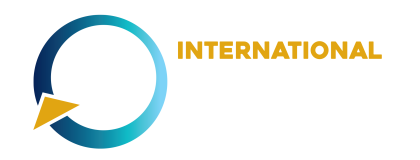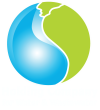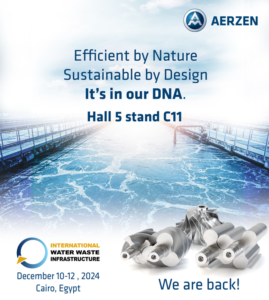BUSINESS OPPORTUNITIES
- Desalination technologies
- Water desalination
- Desalination plant
- Water scarcity solutions
- Nationalization of water technologies
Desalination Industry & Technologies Nationalization
Egypt faces significant challenges in meeting its growing water demand due to population growth, urbanization, and climate change impacts. The country heavily relies on the Nile River for its freshwater supply, facing increasing pressure from upstream countries and internal water management issues. While desalination presents a promising solution, challenges such as high energy consumption, brine disposal, and initial capital investment hinder widespread adoption. Additionally, ensuring the localization and nationalization of desalination technologies is essential for Egypt to build domestic capacity and reduce dependency on imported solutions.
Wastewater Technologies: Small Scale Sanitation
Egypt’s urban and rural areas struggle with inadequate sanitation infrastructure, leading to health hazards and environmental pollution. Access to safe sanitation remains a challenge for many communities, particularly in rural areas and informal settlements. Small-scale wastewater treatment technologies offer a decentralized approach to address these challenges, but barriers such as limited awareness, funding constraints, and regulatory frameworks hinder their widespread implementation. Building capacity in decentralized sanitation and promoting community engagement are crucial for improving sanitation access and public health outcomes in Egypt.
- Wastewater treatment technologies
- Small-scale sanitation
- Decentralized wastewater treatment
- Sanitation solutions
- Community wastewater management
- Sludge treatment
- Sewagesludge management
- Sludge valorization
- Waste-to-energy from sludge
- Sustainable sludge management
Sludge Management & Applications
Egypt generates significant volumes of sewage sludge from wastewater treatment plants, posing challenges in its safe and sustainable management. Inefficient sludge treatment and disposal practices contribute to environmental pollution and health risks. While sludge has potential applications in agriculture, energy generation, and construction materials, limited infrastructure, technical expertise, and market demand hinder its valorization. Addressing these challenges requires investment in sludge treatment technologies, regulatory frameworks for safe sludge management, and promoting markets for sludge-derived products.
Industrial Wastewater & Pollution Control
Industrial activities in Egypt contribute to water pollution through discharge of untreated or inadequately treated wastewater into water bodies. The textile, chemical, and manufacturing sectors are among the major contributors to industrial pollution. Challenges include outdated infrastructure, inadequate enforcement of environmental regulations, and limited industrial wastewater treatment capacity. Balancing industrial growth with environmental protection requires investment in pollution control technologies, capacity building for industries, and effective enforcement of regulations to mitigate water pollution and safeguard public health.
- Industrial wastewater treatment
- Pollution control technologies
- Water pollution mitigation
- Environmental compliance solutions
- Industrial effluent treatment
- Non-conventional water sources
- Rainwater harvesting
- Brackish water desalination
- Storm water reuse
- Water resource diversification
Non-Conventional Water Resources (NCWR)
Egypt faces water scarcity exacerbated by population growth, climate change, and limited freshwater resources. Exploring non-conventional water resources such as rainwater harvesting, stormwater reuse, and brackish water desalination can help augment water supply and enhance resilience. However, challenges include limited infrastructure for NCWR utilization, high initial costs, and fragmented regulatory frameworks. Promoting investment in NCWR infrastructure, raising awareness about water conservation, and integrating NCWR into water management strategies are essential for enhancing water security in Egypt.
Municipal Solid Wastes: Current Status & Future Vision
Egypt faces challenges in municipal solid waste management, including inadequate waste collection, limited recycling infrastructure, and open dumping practices. Rapid urbanization and population growth exacerbate waste generation, leading to environmental pollution and public health risks. The informal sector plays a significant role in waste collection and recycling but lacks formal recognition and support. Addressing these challenges requires investment in waste collection infrastructure, promoting recycling and waste-to-energy initiatives, and strengthening regulatory frameworks for sustainable waste management.
- Solid waste management
- Municipal waste recycling
- Waste-to-energy solutions
- Circular economy waste management
- Sustainable waste practices
- Water sector financing
- Waste sector investment
- Funding water infrastructure
- Financing sustainable development
- Public-private partnerships for water projects
Financing of Water and Waste Sector Challenges
Securing adequate financing is a fundamental challenge for addressing the diverse water and waste sector challenges in Egypt. Limited public funding, competing priorities, and fiscal constraints pose significant barriers to investment in water infrastructure, technology adoption, and capacity building initiatives. Private sector participation in financing water and waste projects remains relatively low, partly due to perceived investment risks and regulatory uncertainties. Additionally, accessing international funding sources and development assistance programs requires navigating complex procedures and meeting stringent eligibility criteria. Addressing the financing challenge necessitates innovative financing mechanisms, such as public-private partnerships, green bonds, and microfinance initiatives, to mobilize resources for critical water and waste management projects. Strengthening financial institutions, improving transparency and accountability in budget allocation, and promoting investment-friendly policies are essential for attracting domestic and international financing to support sustainable development in the water and waste sectors.





